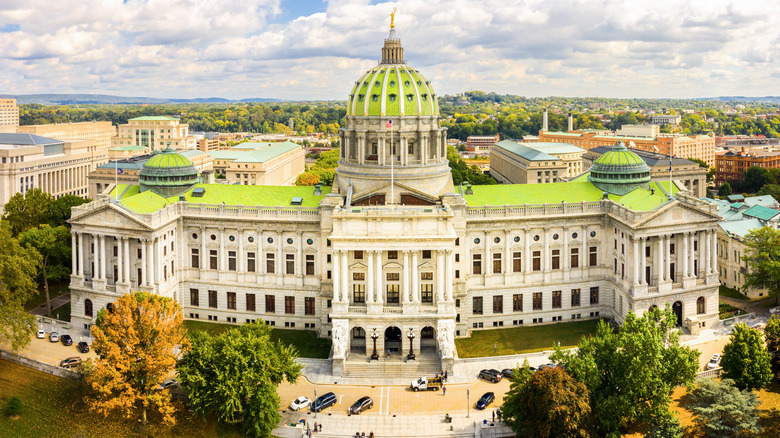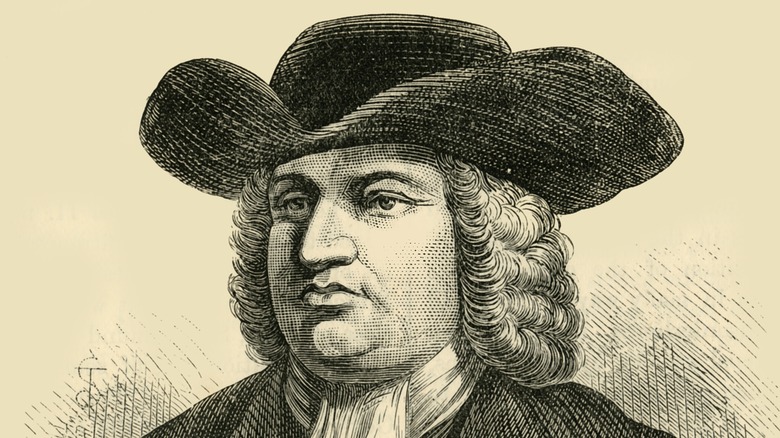The Real Reason Pennsylvania Was Created
Pennsylvania is a state with a lot to be proud of. The Keystone State, per Britannica, one of the original 13 colonies of the U.S., boasts bustling cities like Pittsburgh and Philadelphia, and is steeped in the history of the nation that became the United States.
Pennsylvania is also home to Gettysburg, the site of perhaps the most crucial battle of the Civil War. Per History, the Union victory in the Battle of Gettysburg, July 1-3, 1863, forced General Robert E. Lee to abandon his second planned invasion of the northern states. Later that year, on November 19, Abraham Lincoln gave his brief-yet-legendary Gettysburg Address here.
Almost two centuries before these events, though, England was having its own Civil War(s). Per Britannica, this series of conflicts lasted from 1642 to 1651, and was contested between the forces of the royalists and supporters of King Charles I and parliamentary forces. Though the king lost the war and was ultimately executed for treason on January 30, 1649, his son, Charles II, returned with the restoration of the monarchy. It was Charles II who would create the Pennsylvania we know today. According to The State Museum Of Pennsylvania, he actually did it because he owed a debt to wealthy British Admiral Sir William Penn.
Charles II had a debt to settle with William Penn
The State Museum Of Pennsylvania explains that the admiral had a son who was named for him. This William Penn was a Brit who grew up during the conflict(s) between Charles I and parliament, and became a Quaker in later life. His aim, reportedly, was to establish a colony of his own in what would become the United States, where minority beliefs such as his would be respected and could flourish. By chance, he had just the leverage with Charles II to make this happen: Penn's father, Admiral Sir William Penn, had equipped and provided supplies for the British navy, but died before he was recompensed by the British crown.
Meeting the king in 1680, Penn asked permission to establish a colony, stating that he would waive the money owed if granted it. Charles II reportedly created an official Charter within a year, and asked that the name "Penn" be added to one of Penn's prospective names for the colony, "Sylvania," in honor of the admiral's service.
Explore PA History reports that Penn's new colony — which was formally given to him in 1682 by the small groups of settlers from the Netherlands and Sweden who inhabited parts of it — quickly flourished. His "Holy Experiment" proved very successful: various European groups made homes there, making for a tolerant, rich, and diverse community. By the Civil War, its population had swelled to over 250,000.

